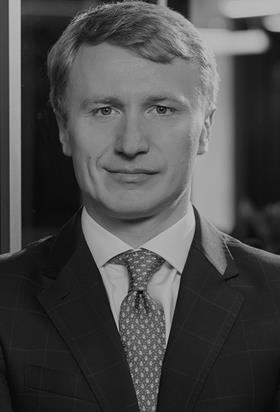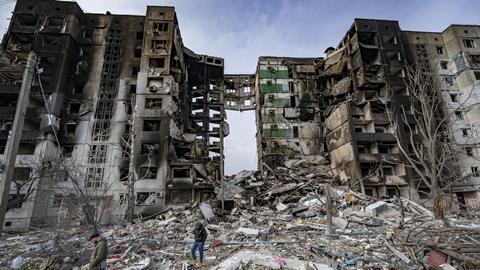We woke up early in the morning of 24 February and knew for sure – the war was at our doorstep. For many of us, our first waking moments were scenes of massive explosions all over Ukraine, with images on TV screens of Russian troops advancing into our territory and eyewitness accounts across our social media feeds.

Even if we did not want to believe it, war had come to Europe in the 21st century. However, the writing had been on the wall for quite some time. The exodus of foreign diplomats, which started in autumn 2021, gave us the clearest indication yet that the situation had become serious. On almost each and every flight from Kyiv, one would encounter families of diplomats leaving the country, easy recognisable by their diplomatic passports.
Bearing in mind the geography of Ukraine, and our most recent history of tensions with Russian ‘brothers’, we used the time to prepare for the worst-case scenario. Ukraine has 3,200km of common border on land and sea with Russia and Belarus, which means that our exposure to our hostile neighbours is considerable.
My firm, Arzinger, has for years operated offices in three locations - Kyiv, Odessa and Lviv.
One did not have to be the greatest military expert to understand that Kyiv and Odessa would be in the immediate firing line of the Russian forces. Therefore, the natural choice for evacuation, and the safest destination for us in this scenario, was western Ukraine - with Lviv as a main hub.
We secured some residential properties on the ground in some cities of western Ukraine and developed lists which would help us evacuate staff. Contact details were shared with our people to find relevant information should all other communications fail.
Within two weeks of the invasion, the majority of our staff and their families from the offices in Kyiv and Odessa (that is, those willing to evacuate) had left their homes. Some of them settled down with their relatives and friends, others in the properties secured by the firm for evacuation purposes. Some used western Ukraine as a hub to move further west, to Europe and overseas.
Immediately following the invasion, the firm made advance payments to employees to allow them to move freely and so that they did not have to worry about the basics. We have also made commitments of guaranteed financial support for the next three months for all employees, and we have strongly encouraged people to look for new (temporary) jobs and opportunities outside of the firm. We have also reached out to our friends, including major international and domestic firms, asking them to support our people to keep them busy until Ukraine recovers from the war.
Together with our friends in the global legal community, we have developed a great pro bono project – providing immigration guidance from 25-plus jurisdictions for Ukrainians on the road, fleeing the conflict. The project was supported by the Ukrainian chapter of the American Chamber of Commerce and is available for free download.
As you might expect, legal work as such has almost dried up – and our turnover has dropped dramatically. It is testament to the bravery and resilience of our people that the team has kept itself busy with all kinds of pro bono work supporting the national effort and civilians caught in the crossfire. This includes development of various supply and donation contracts, establishing charities abroad, developing new legislation to support the economy and collecting evidences of war crimes.
Social media is an extremely important tool these days to deliver the message to the world and raise the profile of the Ukrainian cause. Having said this, we keep observing very restrictive policies on certain social media platforms - which block some content relating Russian atrocities, including photographs.
Everybody in Ukraine has their own front in the conflict. As a major domestic firm with high-profile contacts all over the world, we have been doing our best to raise awareness of the war and to help our government and various charities to raise funds to support the Ukrainian army and refugees. Many of our colleagues have been helping people fleeing from eastern and central Ukraine to the western part of the country with logistics, such as how to cross the border. We have also been helping to evacuate abandoned animals. Personally, on almost a daily basis, I deliver presentations to our friends and colleagues in major international and domestic law firms all over the world to help them better understand the situation on the ground – and to make them aware about the crimes that are being committed by Russian forces.
It is our mission these days to reach out to as many people as possible, from all over the world, to make them realise how serious the situation in Ukraine is. It is very important for everyone to finally understand that this is not a war between Ukraine and Russia, but a Russian war against humanity. In fighting this war, we are doing our best to protect the world from barbarism. If they are not stopped today in Ukraine, tomorrow the war will spill into Europe – and many more will witness death and destruction at the hands of this brutal regime.
We need money, we need weapons, and we need real united actions from politicians all over the world to increase pressure on Putin and Russia to immediately stop the war.
Timur Bondaryev is the managing partner and founder of Ukrainian law firm Arzinger
































No comments yet